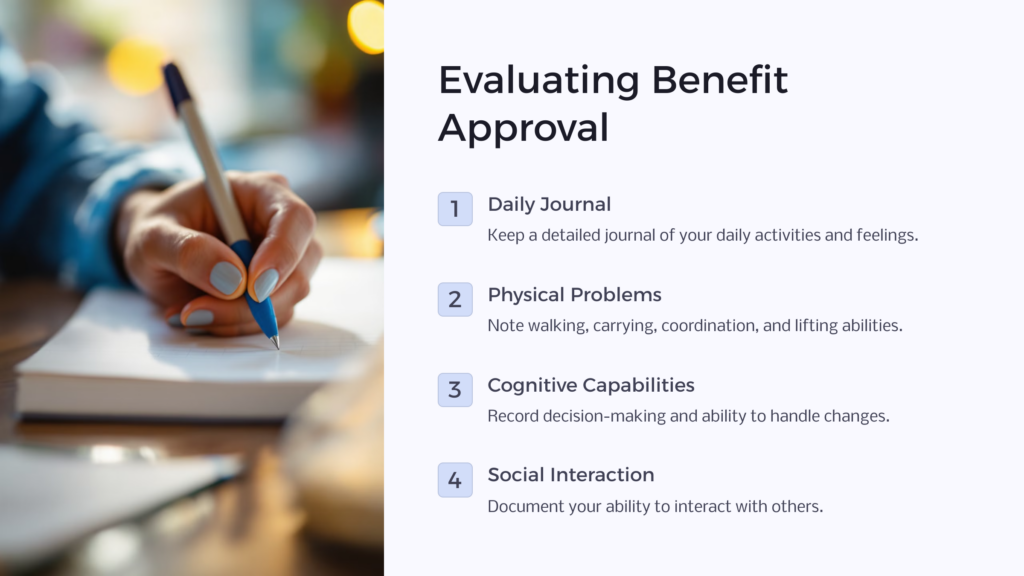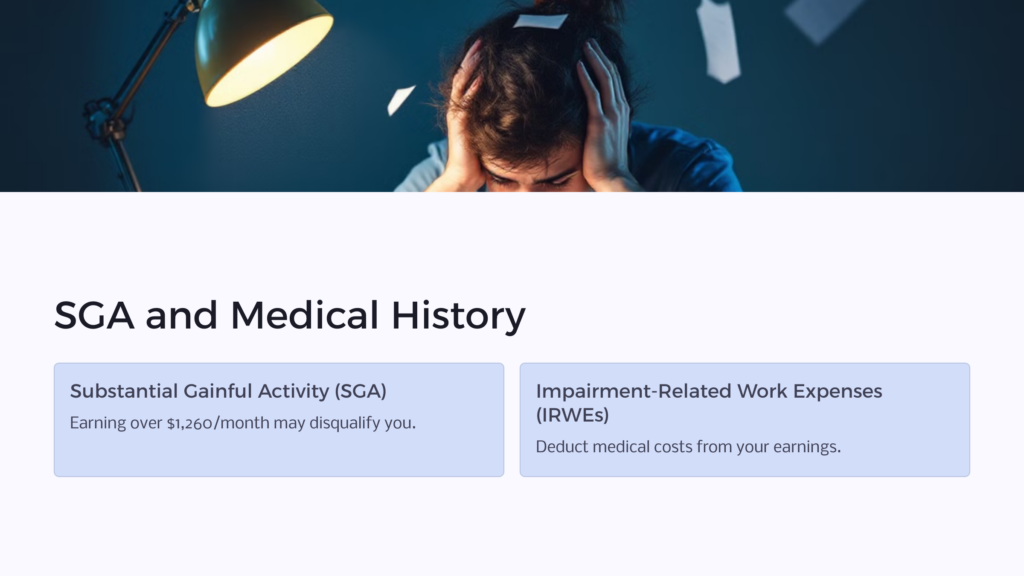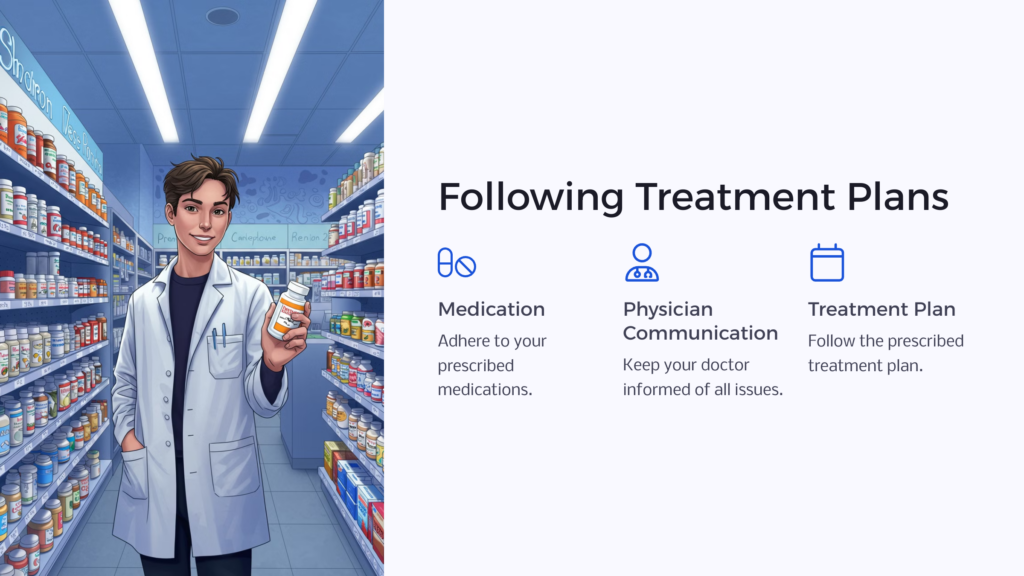SSDI benefits from the Social Security Administration may be received for serious cases of Multiple Sclerosis. The primary requirements the SSA demands are that the disease prevents you from engaging in a substantially gainful job and that the illness prevents such employment for at least a year, or it is in terminal stages.
Evaluating Benefit Approval

It is very helpful if you have kept a daily personal journal about how your medical condition affects your daily activities and how you feel. If you have not been doing so, it would be a good idea to start doing so at this time. Make your notes are very detailed and include:
Your physical problems throughout each day, such as your abilities in walking, carrying, coordination, balance, and for lifting things.
- Your cognitive capabilities, such as making correct choices, evaluating decisions, and dealing with changes.
- Your capability to socially interact with other people.
- Your general feelings, such as your outlook on life, depression, or anxiety.
Include any side effects from your medications you experienced during the day. You should make these notes available to your treating physician so he is aware of what is happening in your life; request that they be entered into your medical records. If others are present when you have acute episodes, it is important for the other persons to document their observations because you may not be able to do so or even if you can. They should describe what happened, how long it lasted, and how severe it appeared to be. And, of course, the full date should be annotated on anything that is written
It would be helpful to be under the care of a neurologist or, if you live in a rural area without specialist, at least to have been diagnosed by a neurologist and have your primary care doctor communicate with the neurologist about your care. This will just strengthen your case.
Approval or Denial of Your Disability Claim

The first step for a Disability Examiner is to find if you are working at a substantial gainful activity (SGA) level. For 2020, this means you are earning at least $1,260 gross wages per month or are self-employed earning $2,100 net profit or during your first two years of disability are working eighty hours per month. If you are, your claim will receive a technical denial. However, it is important to note that the dollar amount considered in the SGA evaluation is your earnings after they have been reduced by any Impairment-Related Work Expenses (IRWE’s), which include but are not limited to medical treatments and medication for your disabling conditions.
If you are earning less than the SGA, the examiner will review your medical history. This is a crucial step. Make certain your medical records are complete and all your diagnostic tests, spinal tap results, laboratory results, treatment plan, and medications are in file as well as your body’s response to the treatment. Also needed is a description of each symptom—how frequently it occurs, how long it lasts, and how intense it is. A narrative of each symptom should include a statement of how it influenced your activities including any attempts to work during your day.

The Disability Examiner could ask for a blood test to make certain you have therapeutic levels of the medication in your body. If you were not able to follow your physician’s treatment plan or did not consistently take the prescribed medications, your claim could be denied. Looking at this issue from a skeptical Disability Examiner’s viewpoint, they may conclude that you are not taking the medications simply because you have overstated your disability and the medications are not really needed. On the other hand, side effects from the prescription medications might explain why you could not continue taking them, or perhaps you are unable to afford the cost of the treatment prescribed. No matter what the reason is for not being able to take the medications or follow the treatment plan, state your issues with your treating physician and on your claim.
Your physician might be able to come with up with a new treatment plan, but only if you keep your doctor up to date on all your problems and reactions. Additionally, your doctor should be able to provide a statement to SSA as to the reason that you are unable to follow the plan.
For a newly diagnosed disease, the examiner will likely want to see if the treatment plan is going to work and how effective it is expected to be before a claim decision is made. This may cause a delay of three months or so in your claim’s evaluation in addition to the usual two-to-five months processing time.
The Listings
The examiner will attempt to match your medical diagnoses and related symptoms to a list of diseases and severities that mean you are disabled regardless of any transferable skills or education you may have. This list is called the List of Impairments. The Listings are found in a manual called a Blue Book. Frequently there will not be an exact or equivalent match to the listing, so further analysis of your case will be needed.
Residual Functional Capacity
The examiner will then want to determine your medical limitations. This involves your doctor or an assigned doctor approved by the SSA determining what your abilities are in conjunction with your disease. Your capability to lift and carry weight, how long you can stand or sit, how far you can walk, how well you can push or pull an object, your manual dexterity, and your ability to bend and stoop—all including how long you can perform these functions, and your cognitive and emotional functioning and flexibility. The results will determine if you could work an 8-hour day, five days a week with those limitations. This is called your Residual Functional Capacity (RFC). Sometimes this is done formally through and examination and completion of an RFC form. Other times the limitations and capacities are ascertained from review of your records.
The RFC will place you in one of the following categories for physical conditions to show what work is suitable for you to engage in—Sedentary, Light, Medium, or Heavy work as defined by the Department of Labor. If you have limitations stemming from mental illness or a cognitive impairment, the RFC includes assessment of things like your ability to follow directions, to concentrate, to tolerate stress, and to work with other people.
Your Ability to Work with Your Limitations
If necessary, the next step for the claims examiner is to determine if your medical limitations are so severe that for at least 12 months you are have been or will be unable to perform SGA in your previous employment. If you can’t return to your prior job, the examiner will compare your residual functional capacity (what you are able to do) with the physical and mental demands of other occupations that you could perform given your age, work history, job skills, job training, and education.
If it is found you are able to work in a new occupation either without training or with on-the-job training, your disability application will be denied. Although each person’s capabilities and background and age are evaluated individually, it is generally considered that someone with at least a high school education should be able to work at numerous kinds unskilled jobs, absent medical conditions that prevent it.
Likelihood of Benefits for MS
If you have substantial muscle weakness and fatigue after an activity and you do not have the background to work in a sedentary occupation or you have vision problems, or you suffer from cognitive difficulties, your chances of being awarded benefits is good.
Appealing a Denial
These are complicated issues and some applicants will not be awarded benefits at this stage, often because many people can work during the early stages of these diseases. If an initial disability application for benefits filed with SSA is unsuccessful, you can appeal if after you have obtained a copy of your claim file and seen the exact reasons for the denial and the evidence in file, you think an error has been made.
You are not required to have any legal representation and you can certainly represent yourself. However, it would be in your best interest to have a disability attorney who is experienced and specially trained in Social Security Disability law represent you. The stakes are very high on your appeal in this process and you should have the best opportunity to show your claim in the strongest possible terms.
Such an attorney would be able to construct your appeal so it is presented in the best possible light for a reconsideration appeal and, if necessary, in front of an administrative law judge. The lawyer would be able to see any weaknesses in your case and seek additional evidence or find expert or other witnesses to present to the judge during the hearing. In addition, such an attorney could see the faults in the original SSA decision. He or she could then highlight those while showing how strong your case actually is.
 Benefits.com Advisors
Benefits.com Advisors
With expertise spanning local, state, and federal benefit programs, our team is dedicated to guiding individuals towards the perfect program tailored to their unique circumstances.
Rise to the top with Peak Benefits!
Join our Peak Benefits Newsletter for the latest news, resources, and offers on all things government benefits.



















